Pros
- Utilizes an environmentally-sustainable, renewable resource
- Low-maintenance
- High-quality bamboo is as durable as conventional wood flooring, if not more

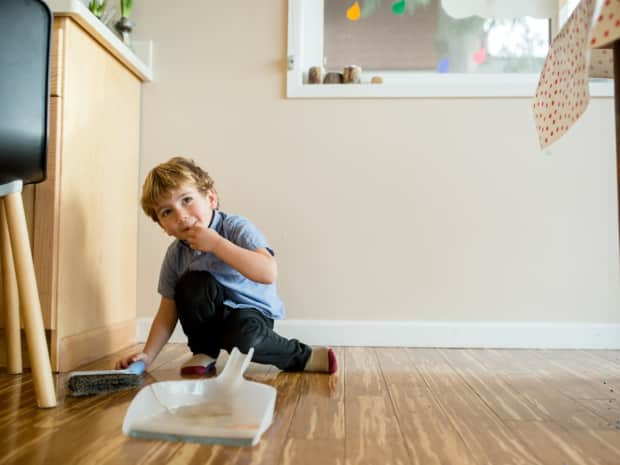
Last Updated: August 5, 2024
Bamboo is renowned for its durability and strength—making it an excellent material for your floors. Despite how durable it is, that doesn't mean it's indestructible. Here's how to clean bamboo floors the right way.
Bamboo floors are very popular for several good reasons: they're modern, eco-friendly, and can last a long time if taken care of properly! To make sure you're doing just that, we've created a handy guide with our best tips and tricks on how to get the most life out of your bamboo floors.
Bamboo is made from, you guessed it, bamboo! In a nutshell, it's a fast-growing grass that matures in five years and is able to regenerate on its own without being planted. It's also great for the environment as it doesn't entail any deforestation and requires very little water to grow.
Bamboo flooring is made from this hardy grass and is available in natural or engineered planks, in a variety of styles and colors.
Give this quick video a watch to see just how quickly this grass grows:
Grove Tip
While quality bamboo flooring is generally more water-resistant than typical hardwood floors, it’s not waterproof — and therefore not ideal for bathrooms and other wet, humid areas in your home.
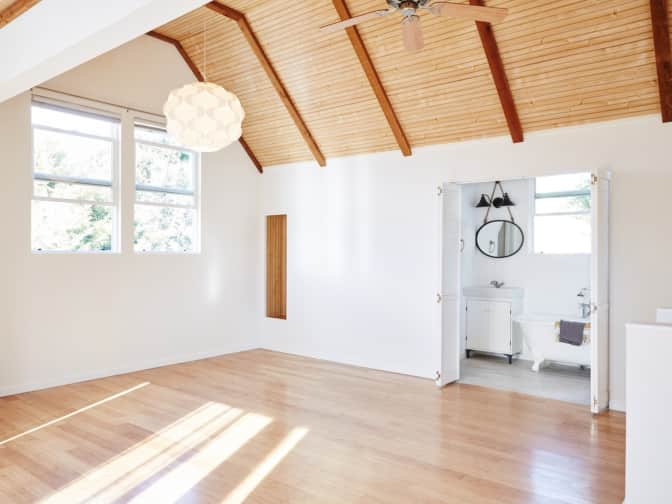
For the most part, the only things you need to clean your bamboo floors are a microfiber dust mop — and maybe a few spritzes of water.
Microfiber removes visible and microscopic debris from your floor, including bacteria, mold spores, dust mite parts, and other allergy- and illness-causing particles. Most conventional mops and dust mops tend to just push dirt around.
Occasionally, you might need to deep clean your bamboo floors. In that case, use a hardwood floor cleaner that’s pH-neutral.
If your cleaner is too acidic (like vinegar) or too alkaline (like ammonia), it’ll damage your floor’s finish. The best bamboo floor cleaners are non-toxic and biodegradable.
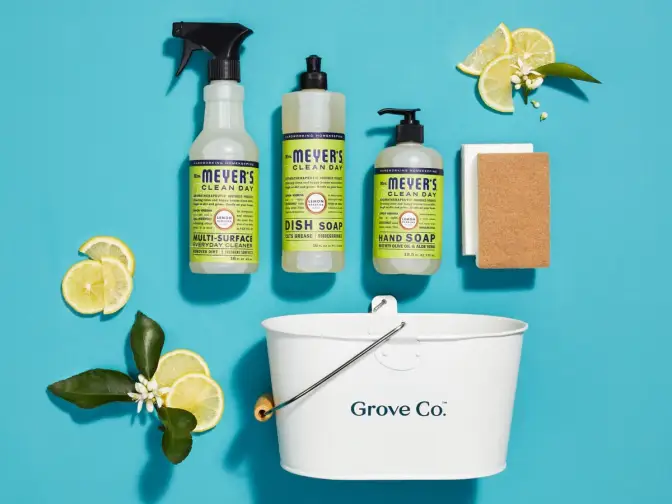
Wondering who Grove is, what types of products we offer, and how to get a free gift set when you sign up? Learn more about flexible monthly shipments, customizing your shipment, and joining millions of happy households — no monthly fees or commitments required.
Some highly-acidic cleaners can quickly eat away at the finish of your bamboo floors. Others leave behind residues that dull the shine or turn it milky, which can be difficult to recoat down the road.
Never use these cleaners on bamboo:
No!
Murphy’s Oil Soap and other soap products can damage the protective coating on the floor and even cause it to peel off.
Nope!
It’s best to spritz your microfiber mop head with a pH-neutral hardwood floor cleaner.
If you spray the cleaner directly on the floor, it can seep into the seams between boards and damage the floor over time.
Never!
The best way to destroy your bamboo floors is with steam — the wood will absorb the moisture, which may cause irreparable damage like swelling and warping.
Regular cleaning and maintenance will keep your bamboo floors in tip-top shape.
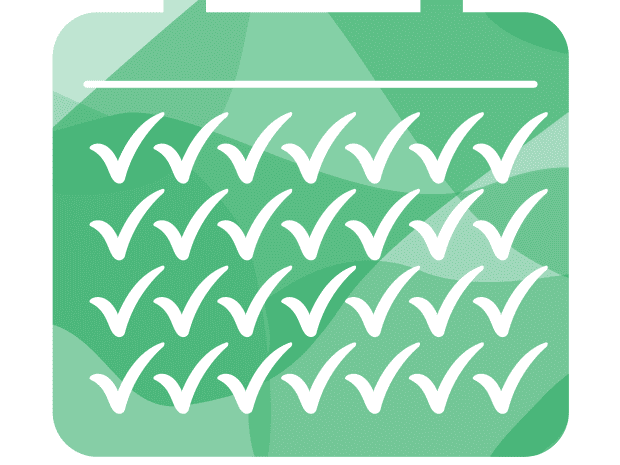
If the floor has lots of dirt and dust on it, use a soft-bristled broom to sweep it up, then do the microfiber dusting.
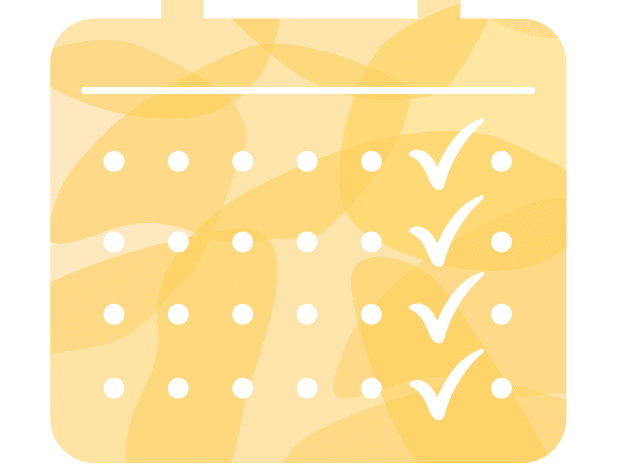
Remove the microfiber pad, soak it in warm water, wring out as much water as you can, replace the pad — and mop!

We have natural floor cleaning products for every walk-on-able surface in your home — and our helpful guides for cleaning vinyl plank, tile, hardwood, travertine, and laminate floors show you how to clean them the right way.
Grove Tip
The best way to shine your bamboo floors is to damp-mop them with a microfiber mop, which — by its very nature — won’t cause streaks.
The best way to keep them streak-free and shiny is to avoid using waxes, silicones, soaps, and other products that leave streaks — and dull the finish over time.
If your floors are light in color, scuff marks will probably look pretty obvious.
To remove them, apply a small amount of hardwood floor cleaner to the corner of a microfiber cloth, rub them away, and buff the spot with a dry corner of the cloth.
If you spill anything on your floors, wipe it up right away with a soft, dry towel.
Then, get out your microfiber mop, dampen it, and thoroughly clean the area.
Mayonnaise sometimes works to remove or reduce discoloration or stains.
Spread a small amount of mayo over the stain, let it sit for 15 minutes, then wipe it off and polish the floor with a dry microfiber cloth.
Whether or not this remedy works for you depends on your floor and the type of stain you’re trying to remove.
Grove Tip
Engineered bamboo flooring is, in general, up to 30 percent weaker than natural, solid bamboo.
This type of bamboo flooring is more susceptible than natural varieties to wear and tear, but cleaning it often with the same cleaners and methods you’d use on natural bamboo will help extend its life.


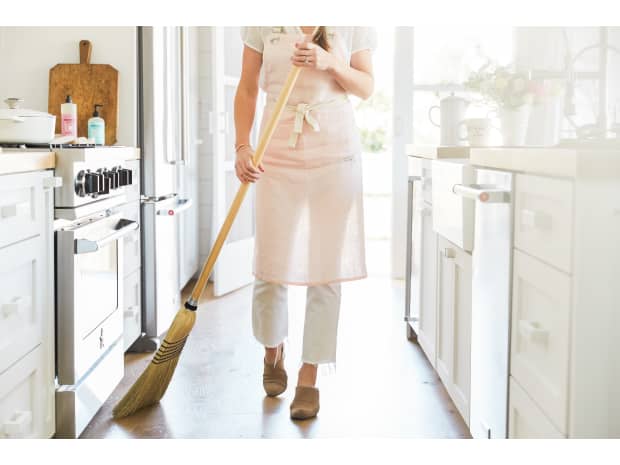
If you’re looking for the best and easiest way to clean your baseboards, use our easy to follow guide for step by step instructions and shortcuts.

You’ve probably heard the hype surrounding microfiber for cleaning, but what is this magical material, how does it work, and is it all it’s cracked up to be?

You're cleaning these nine things too often. Tell the haters that Grove told you so — and backed it with evidence! We talked with Lead Grove Guide Angela Ball to find out more.
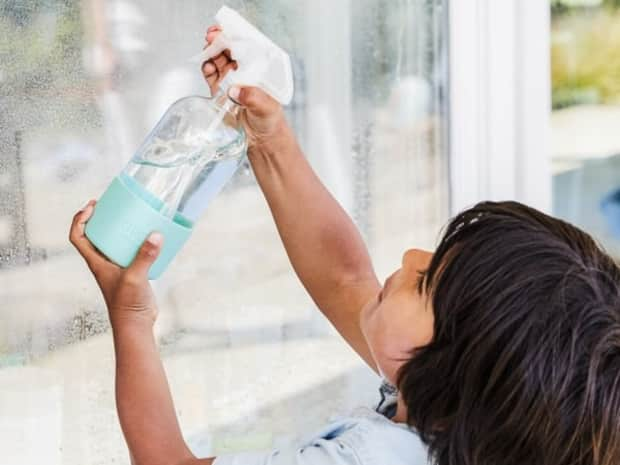
A clean home requires routine cleaning, but these five places fall outside of a typical schedule. Here’s how —and why — to clean them..